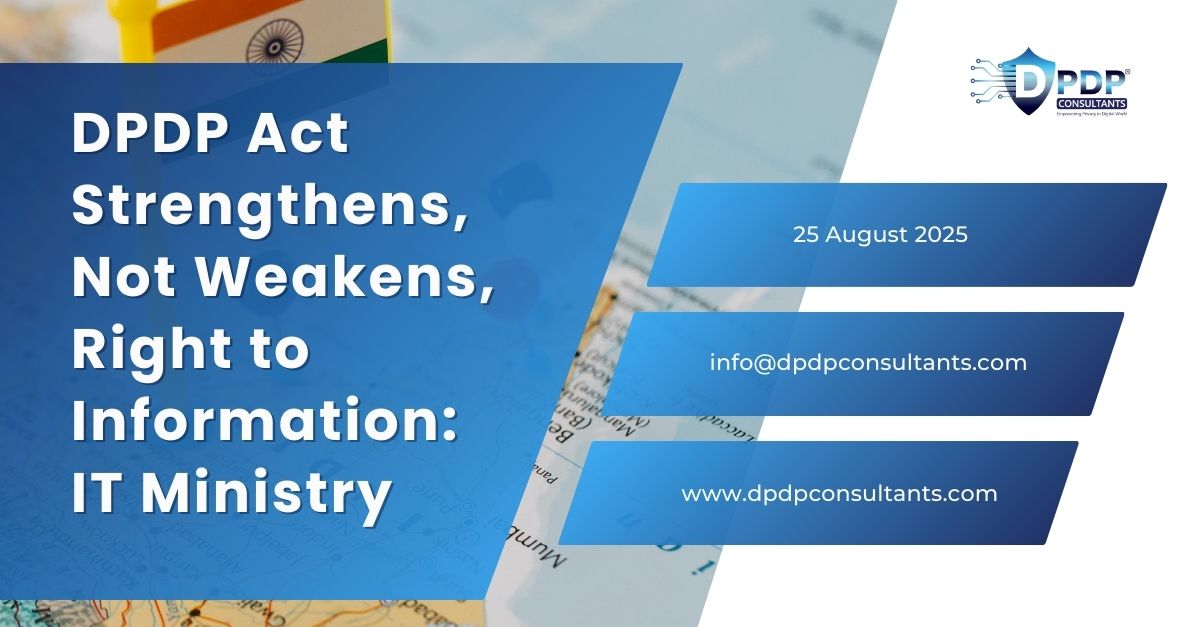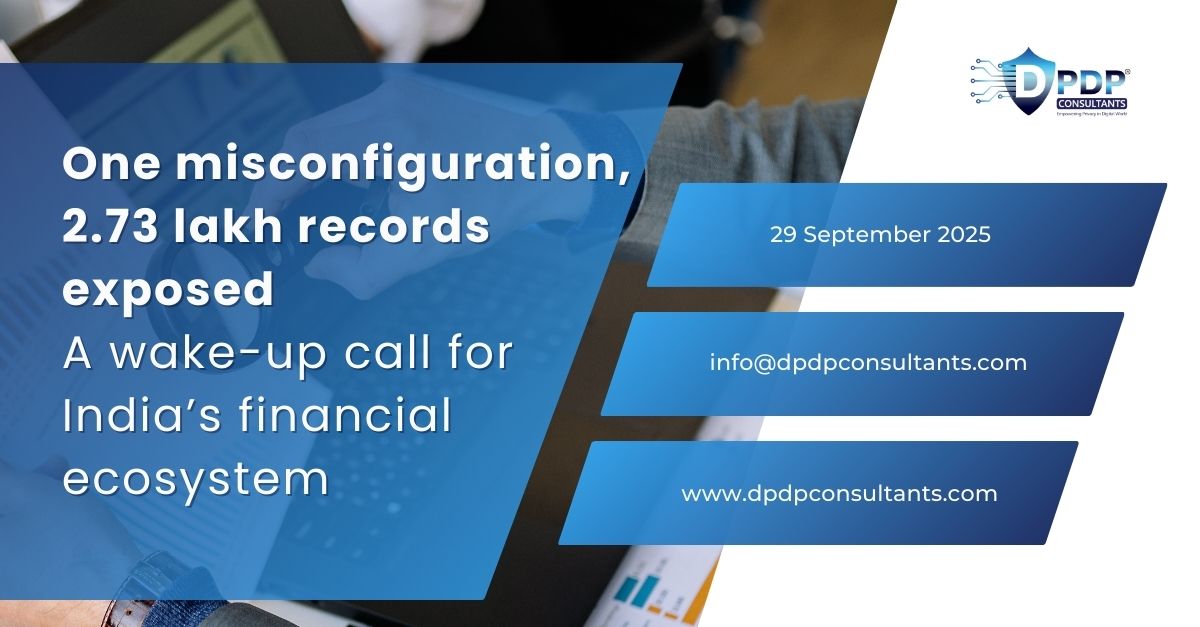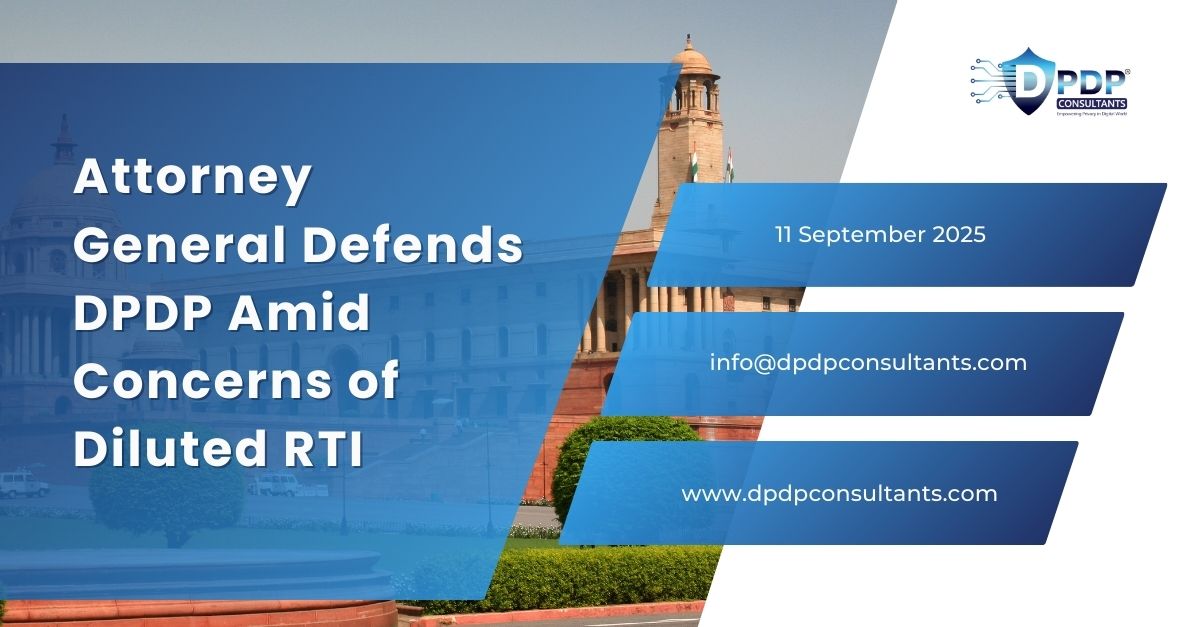New Delhi, August 2025. The Ministry of Electronics
and Information Technology (MeitY) has reaffirmed that the Digital Personal
Data Protection (DPDP) Act, 2023, does not weaken the Right to Information
(RTI) Act, 2005. Instead, it clarifies and strengthens the interplay between
privacy and transparency.
Redundancy Eliminated, Not Rights
IT Secretary S. Krishnan, in a statement to the Hindustan
Times, emphasized that Section 44(3) of the DPDP Act simply removes a
"redundant provision" from Section 8(1)(j) of the RTI Act. This
clause allowed disclosure of private information in the name of public
interest. According to him, it was unnecessary because Section 8(2) already
provides a robust public-interest override for disclosures. He asserted:
“There is no dilution, in fact there is a strengthening.”
Parliamentary Clarification and Legal Backing
The issue was raised through a starred question in the Lok
Sabha, prompting IT Minister Ashwini Vaishnaw to clarify that the amendment
aligns the RTI Act with judicial interpretive frameworks. This includes the
Supreme Court's recognition of privacy as a fundamental right in the Puttaswamy
judgment. He added that the amendment prevents legal conflict between
overlapping laws.
Government Assertions vs. Civil Society Concerns
Government Perspective
As per a press release by the Press Information Bureau
(PIB), the DPDP Act’s amendment reflects careful reconciliation of privacy and
transparency, backed by extensive public consultation with over 22,600 inputs
before enactment. The government also notes that the Rules governing DPDP are
being finalized and will soon be operational, though they remain pending more
than 24 months after the Act’s passage.
Reaction from Experts and Activists
Despite official assurances, civil society actors, including
journalists and RTI advocates, warn of serious implications.
- A
prominent open letter from Justice A.P. Shah, co-author of the 2012 Group
of Experts report, urged immediate repeal of the amendment. He highlighted
that the removal of the public-interest proviso and the vague definition
of “personal information” could undermine RTI’s foundational purpose of
citizen empowerment and government accountability.
- The
Internet Freedom Foundation emphasized concerns around the absence of a
‘journalistic purpose’ exemption in the DPDP Act. Without it, and with the
RTI amendment, journalists may be unduly constrained in accessing and
reporting critical government information.
Strategic Insights for Public Policy, Governance, and Law
For professionals engaged in policy, legal practice, or
public administration, several key takeaways emerge:
- Clarifying
Redundancy vs. Dilution: The deletion of duplicated language can
streamline statutes. Yet the optics and implications of removing any
provision from a flagship transparency law demand heightened sensitivity.
- Juridical
Anchoring: Aligning new legislation with Supreme Court jurisprudence
is critical. The DPDP’s amendment seeks coherence with Puttaswamy
and the principle that privacy, while fundamental, is subject to
reasonable restrictions in the public interest.
- Need
for Legislative Precision: Ambiguously phrased exemptions or removal
of public-interest overrides can erode institutional transparency. Clarity
in law drafting is essential to preserve RTI’s core functions.
- Engaging
Stakeholders Effectively: While the government touts extensive
consultations, experts underscore that the outcome, absent meaningful
checks like a journalist exemption, still raises legitimate concerns.
Future policy initiatives must integrate responsive stakeholder engagement
with legislative rigor.
Conclusion
The DPDP Act’s amendment to the RTI Act embodies a nuanced
legal recalibration, seeking harmony between two foundational democratic
rights, privacy and transparency. MeitY frames it as both necessary and
reinforcing, while critics warn of potential erosion in practice.
As India’s governance frameworks evolve, the effective
implementation of this balance will depend on clarity in rules, judicial
scrutiny, and persistent civic vigilance.
Stay with us for updates on: DPDP
Consultants Newsletter





